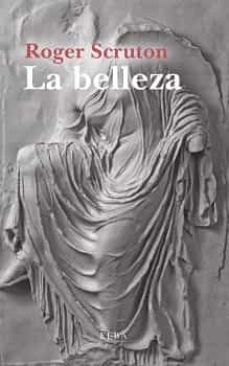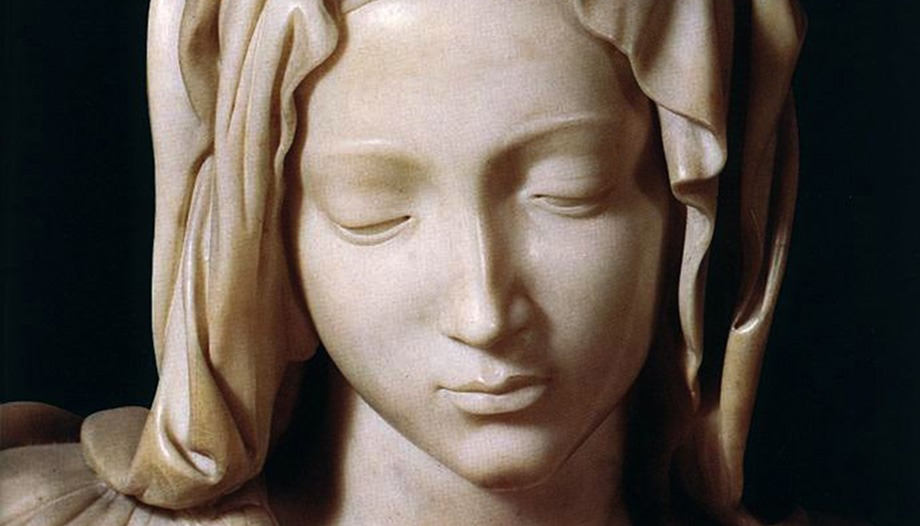When I finished reading the essay on "The beauty"Roger Scruton, I remembered an incident I witnessed in Art Theory class that represents quite well one of the fundamental problems of my generation.
The professor was presenting classical art with images and was moderating the discussion on its valuation. Suddenly, a student, who had apparently become confident, raised his hand and asked: "But how do you, professor, know what is beautiful and what is not?
This student's question could be expanded: Are all aesthetic opinions of equal value, or can we say that there are some that are not? best than others, is it reasonable to say that someone's taste could be best Is beauty a merely subjective value, something like a capricious and individual pleasure, or is it rather a reality present in things and a necessity of the human soul?
The question is pressing, as many artists have become disoriented and relativize the value of beauty in art. Moreover, many have opted to replace beauty with a bad joke.
One of the pioneers of this fashion was Marcel Duchamp, who exhibited with an unusual success in New York his objet trouvé titled "La Fontaine" (1917), that is, a porcelain urinal. A joke that at the time had some humor, I suppose, but that has derived in other repetitive, unpleasant and shamelessly ugly gestures.
The author
Let us pause for a moment to make introductions. Sir Roger Scruton (United Kingdom, 1944-2020) is a name we can only pronounce with nostalgia. F
e was a philosopher who dedicated himself to "asking questions"; a conservative man, a specialist in aesthetics and political philosophy, author of more than fifty books and a regular contributor to newspapers and magazines such as The Times, Spectator y The New Statesman.
A nice man, a culture hero, whom I recommend to visit at Youtube to admire what it means to be a gentleman English.
To get an idea of his style and influence, we can use the image chosen by Enrique García Máiquez to describe him: "His figure has acquired quixotic profiles. He tackled the windmills of nihilism and has shown that they were not phantasmagorias, but powerful systems of thought, with complicities in subjective comforts and shared laziness, which could grind, as if it were no big deal, the values of the West".
About "Beauty".
One of the values of the West that Scruton set out to defend, and did so as the best, was beauty. He devoted to this subject several writings and an essential documentary he made with the BBC (Why Beauty Matters2009); among all this, it is worth noting the essay Beauty (2011), translated into Spanish as The beauty (Elba, Barcelona, 2017).

The book is, in itself, beautiful. They are short chapters, very well linked together and written in a pleasant, informative and refined style that seems to invite the reader to have an important, serene and enriching conversation.
The content is brilliant. What are the broad outlines? Here they go: Beauty is not only a subjective experience, but also a necessity inscribed in our human nature. There's fabric here, so I put it another way: Beauty is the path that leads us away from the spiritual desert and leads us home.
As the author says in the book's introduction: "I argue that beauty is a real and universal value, rooted in our rational nature, and that the sense of beauty plays an indispensable role in shaping the world of humans".
If beauty is objective, literary criticism and the humanities make sense. To affirm this is a powerful and urgent bet, in which philosophers of the stature of Plato, the Earl of Shaftesbury, Kant, etc. participate, each one contributing nuances and differences, but all agreeing that beauty is an objective and necessary value for our existence. That we have forgotten about it is something, at least, critical.
Beauty is described as an essential resource to redeem our suffering, expand our joy and live more in accordance with our dignity; it is not a subjective whim, but a universal human need.
While we are (mis)living only for the useful and the pleasurable, Scruton reminds us that beauty exists, surrounds us and awaits us. The difference between embracing beauty or putting it off is radical: we can continue to live in a hostile world, or we can strive to return to our home.
As you can see, the issue is a major one.











